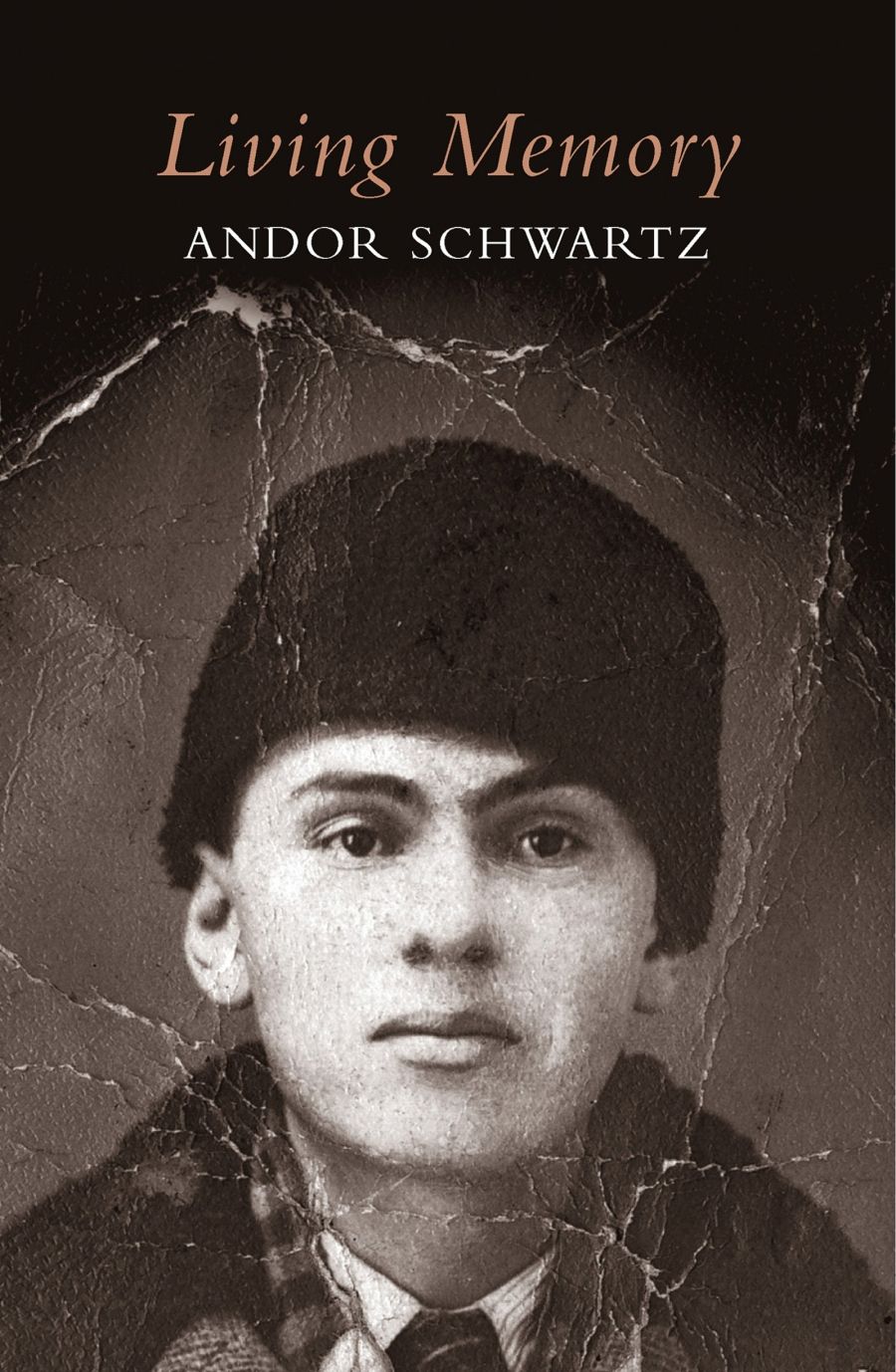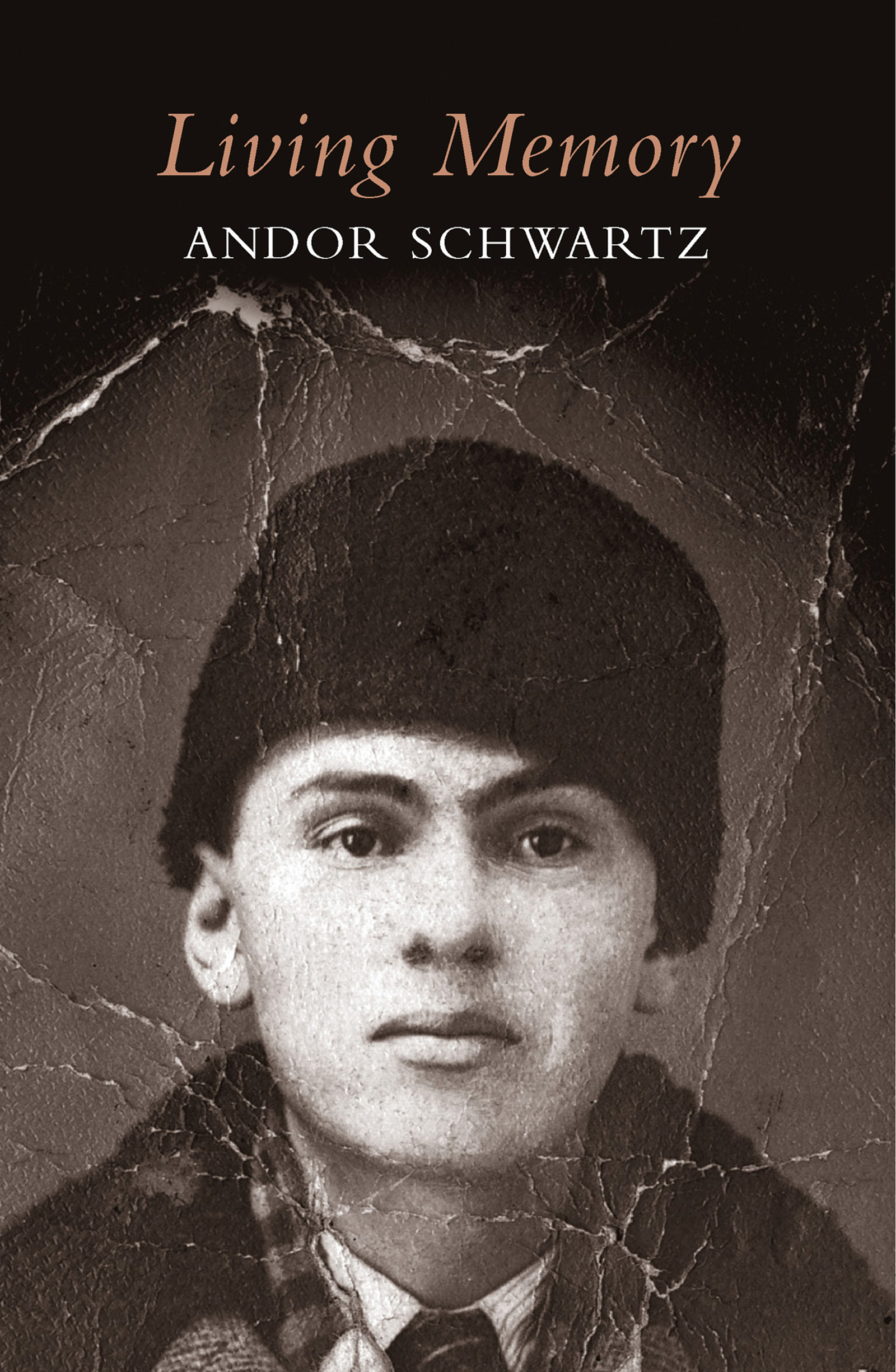
- Free Article: No
- Contents Category: Biography
- Review Article: Yes
- Article Title: Shadow of Desolation
- Online Only: No
- Custom Highlight Text:
This intensely vivid and moving book makes a fine contribution to the burgeoning literature of Australian Jewish autobiography. There are currently about 200 such titles. They vary enormously in standard and kind – from small print run, self-published chronicles written for authors’ families, to the work of high-profile professional writers such as Lily Brett, Morris Lurie and Arnold Zable. These narratives spring from all manner of Jewish backgrounds, including ‘Anglo-Jews’, whose families had been long settled in Australia prior to the Holocaust, and central and eastern European Jews, who lived through the annihilation - in camps, in hiding, in disguise - and settled here after World War II. The majority of life writing by Australian Jews can loosely be classified as Holocaust memoir (‘loosely’ because many survivors resent being seen as merely that, and write in detail about various phases of their lives). The most sophisticated ‘literary’ examples of this sub-genre generally come from second-generation writers, who have had more sustained secular educations than their parents, closer acquaintance with the English language, and more time to write and reflect than was available to the older, refugee generation.
- Book 1 Title: Living Memory
- Book 1 Biblio: Schwartz Publishing, $39.95 hb, 312 pp
- Book 1 Cover Small (400 x 600):

- Book 1 Cover (800 x 1200):

Living Memory is a first-generation narrative by a Hasidic Hungarian Jew, who was spared the horror of the death camps but lost his entire immediate family in the annihilation. A learned Jew, Andor Schwartz had limited secular education and came to the English language at the age of thirty-four. His autobiographical idiom is heavily inflected by Yiddish and Hungarian speech rhythms. This, together with his understandably limited mastery of narrative craft, can make for a rough-hewn quality – a quality familiar in first-generation texts, many of which, like this one, have not been subjected to detailed professional editing. Does it matter? In books like this, surely not. Holocaust memoir doesn’t have to be polished in order to be precious, and Living Memory is a precious human document.
Compelling autobiography (I use the term here, somewhat promiscuously, as a synonym for memoir) starts with a personal presence on the page, and Schwartz’s page presence is huge, unforgettable. The man we meet between these covers is by turns impassioned, warm, loving, shrewd, tough, vulnerable, guilty (for having survived), a huge enthusiast who is wary of pleasure (‘I will never celebrate or laugh full heartedly’), funny, guarded yet heartbreakingly candid, deeply suspicious yet at times almost childlike in his credulity, pragmatic but also a metaphysician who must ask: ‘how could it happen to us?’ (Answer: ‘We don’t know and never will know why it happened to us.’) If he seems indomitable, this robust postwar life has been lived in the shadow of desolation. Writing can be agony, as when he has to recall leaving his family for the last time: ‘I can’t write about that. My heart goes to pieces even now.’
But he does write about it, and about so much else. In his seventy-eighth year, this successful businessman - who says of himself, ‘All my life I felt mystical’ - receives a ‘strong message’: time is short and he must now write about his past. To his astonishment, the words pour from him; long-buried faces and memories flood into consciousness. The manuscript of these 300 pages takes shape in a mere three months. He writes principally for present and future generations of his family. The beautifully produced final product is published by his son, Morry Schwartz. Andor is ‘the last one to remember’ his murdered family, to bear witness to their lives and to the wonderfully rich provincial eastern-European world in which they lived as prosperous landowners. His title is marvellously suggestive: as a survivor, he is a kind of living memory, an embodiment of that lost world. But he is also condemned to live memory: however secure life in the antipodes might be, the trauma of the past threads its way through all he does, a horror, a haunting, a rage that nothing can assuage.
Despite his not being in a death camp, the horrors were all too real. When the Russians drive the Nazis out of Budapest in January 1945, Andor emerges from hiding and visits Dohany synagogue in the Jewish ghetto. The doorway of the synagogue is choked with frozen bodies. In the adjoining yard, frozen bodies are ‘piled up in large mounds’:
I walked on the frozen bodies, I thought I really didn’t hurt them. They had already been dead for months. On top of a mound, I could see an old Jew with a white beard. His body was covered in ice. I could see only his face and his hands. His eyes were open, his mouth was also open showing his teeth, grimacing, he had probably had a very painful death. Both his hands were holding on to a tefillin in a nice red holder. I thought, as I had lost my tefillin, maybe that one would be good for me. I was trying to take it out of his hands, but he held onto it very firmly as he was frozen. I still managed to take it away from him.
The scene is as searingly iconic as any in Holocaust memoir. Tefillin are small boxes with straps attached that are used by devout Jews in weekday prayer. Even in icy death, the old Jew parts begrudgingly with his beloved talisman. The young Jew who prises it from his grasp is an ambiguous figure: hideously pragmatic, as survivors must be; but also a bearer of the faith, a perpetuator of cultural memory.
Minutes after the Nazis have departed, the task of reasserting and rebuilding the shattered world of European Jewry has begun. Days after this, Andor visits a provincial shule and finds young Hasids, bedecked in full ceremonial apparel, fiercely at worship. He recalls: ‘Their prayers were like fire.’
What sustains people when their world is plunged into genocidal nightmare? As most Holocaust memoirs attest, luck plays a major part. Schwartz is convinced that a malach, a guardian angel, orchestrates his survival. The angel also helps motivate the spirit of cautious affirmation that surfaces intermittently throughout the book. For this ‘mystical’ survivor-businessman and refugee from a culture of enchantment, the world is a weave of magic and practicality. His malach takes care not just of body but of soul as well, even furnishing an invisible psychic ‘valve’ that releases the vapours of emotional extremity and allows Andor to live with his anguish, his rage and his memories.
Like many Australian Holocaust memoirs, this one provides only a short coda about life in Australia. Hereabouts, Schwartz is at his least convincing: his claim that he became an instant Aussie (‘I was never an ethnic’) and his preoccupation with family success Down Under both bespeak immigrant anxieties that remain unscrutinised.
Yet these are minor qualms about a book that so powerfully enacts the bitter-sweet prerogatives of human memory – its calling to memorialise the splendours of human culture, but also to bear witness to the madness that reduces splendour to ruin and misery.


Comments powered by CComment